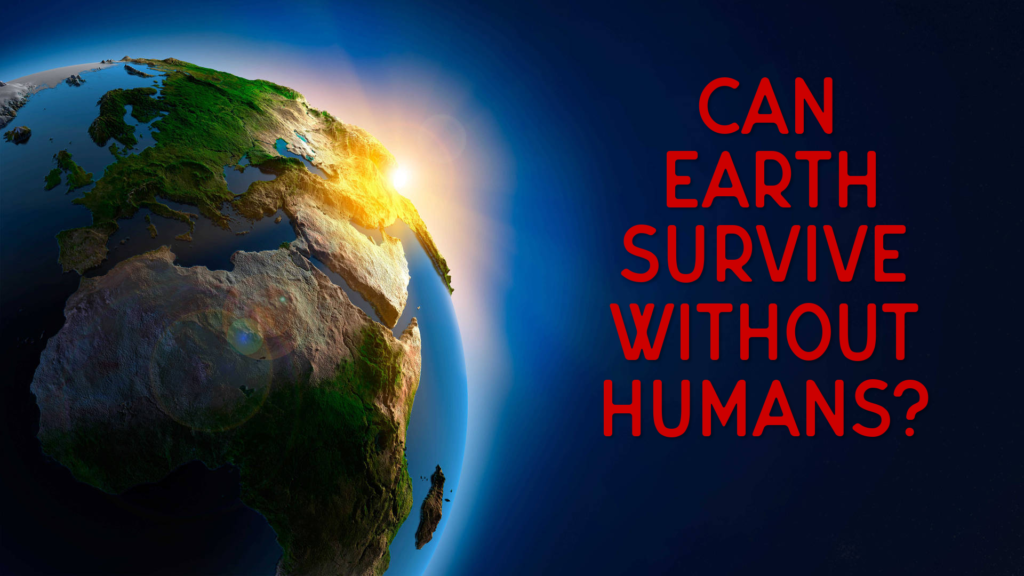Without a doubt, Earth could live without humans; in fact, it would flourish and appear far more lovely without them. I’d want to discuss my personal opinions on the following:
Why can Earth survive without Humans
As we all know and believes Earth to be our mother as humans are surviving because earth has all the basis necessities which any human needs to survive. Neither humans nor any other kind of animal are necessary for Earth to “survive” in any way. Since there have been no humans on Earth for more than 99% of its existence, there is no reason to believe that Earth could end without them. The planet Earth has existed for 4.5 billion years.
No species is necessary for Earth to thrive, especially not humans given the harm we have already caused to the planet’s ecology. If we became extinct, the environment of Earth would ultimately heal from the damage we caused, and in the far future, it would seem as though we had never existed at all.
Without humans, this small blue ball that we call home would continue to function. Humans are not Earth’s “life source”; rather, they are just a species that exists here on Earth and nothing more or less. Furthermore, new species will emerge to replace ourselves and all other contemporary species if we were to disappear. Our future is, of course, dependent upon us. Overall though, Earth would undoubtedly survive without humans.
How can Earth survive without Humans
Humans are not necessary for Earth. Not at all. Earth existed for more than 4 billion years before humans arrived, and it will continue to exist for many more billion years after we are gone, however that will transpire.
Although there has been significant change on Earth throughout the years, the issue being discussed when people talk about global climate change—which is genuine and largely our fault—won’t eventually harm the planet. Both humans and other living things on Earth will be harmed. It will be more difficult for ourselves, other animals, and plants to exist as they are as a result of the changes we are producing. Many will become extinct, and as others lose their food supplies, those extinctions will have a domino effect. There is no way to predict which species will survive and adapt, but some will. Although there is no certainty that we will survive, the planet will continue to rotate whether or not we do.
The natural world would mostly stay unaltered in a world without humans. There would probably be more variety and plenty of wildlife, and ecosystems would flourish.
There might be fewer greenhouse gases in the atmosphere and a different climate in the absence of human industrialization. Without cities and other urban centers, many areas would be returned to nature.
Perhaps there is a greater probability of survival for endangered species.
Not only would there be no human-made technology like computers and the internet, but there would also be no human-shaped art, music, literature, or other cultural achievements throughout history.
Human activity would also not change the Earth’s geological composition.
In the end, a planet devoid of humans would be a far more pristine natural setting, but it would also lack the cultural and technological advancements that define human history.
What if humans not existed
The world today would be very different if humans had never been. Grasslands, marshes, and thick woods would probably cover the earth if humans hadn’t interfered. Without human development and deforestation, the natural landscape would be formed by the forces of wind, water, and weather.
Without human interference, a large number of currently extinct animal species would still survive, and some endangered species would even flourish. The reestablishment of natural predator-prey relationships and a possible improvement in ecosystem balance could result from the absence of human activities.
Some species, like domestic animals, might not be able to thrive without human care, though. Furthermore, in the absence of human interference, the pace at which greenhouse gases and other pollutants are released into the atmosphere is probably going to continue to decrease, which could result in a more stable climate.
To put it succinctly, the world would be very different without humans, influenced more by the laws of nature than by human activity.

